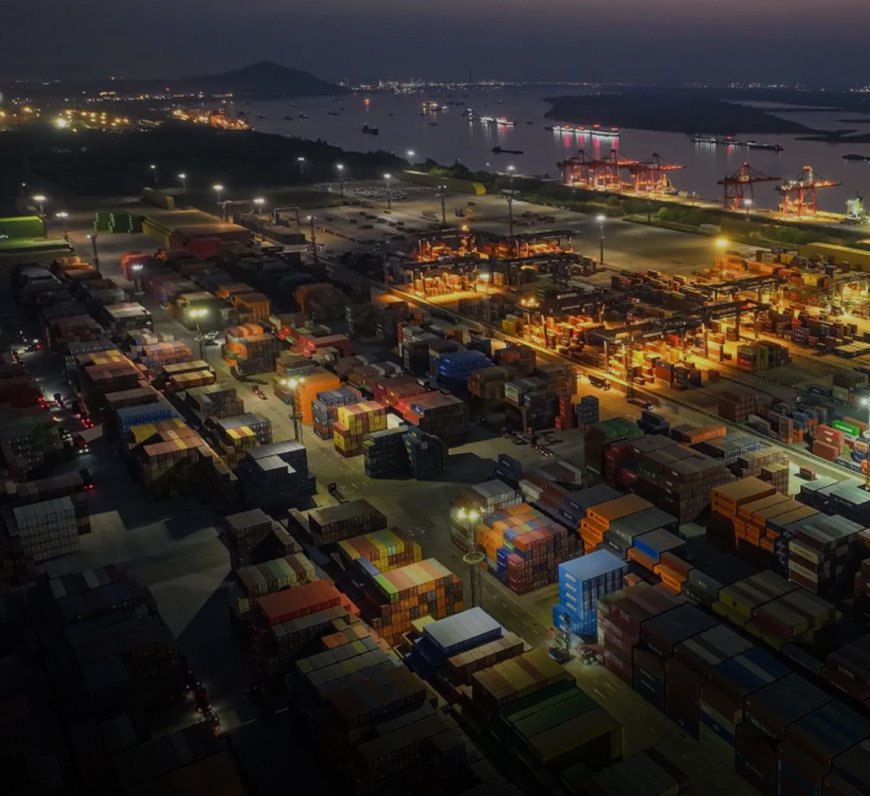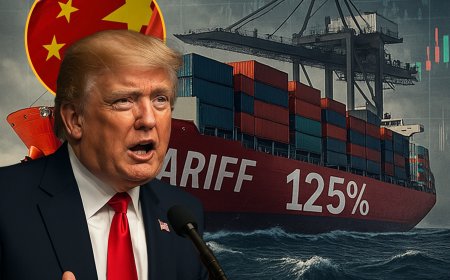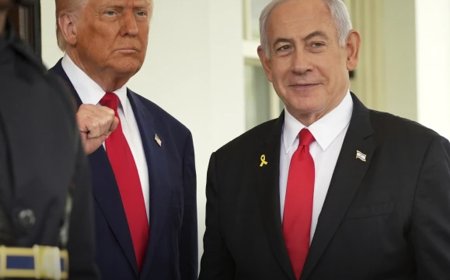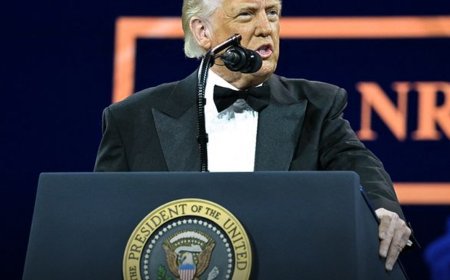China Warns of Retaliation as Trump's 104% Tariffs on Chinese Imports Spark Global Tensions
The Chinese government has issued a stern warning to the United States after President Donald Trump enacted a sweeping 104% tariff on Chinese imports. The move has intensified already high-stakes trade tensions and raised fears of a prolonged global economic standoff.

Beijing, April 2025 — The Chinese government has issued a stern warning to the United States after President Donald Trump enacted a sweeping 104% tariff on Chinese imports. The move has intensified already high-stakes trade tensions and raised fears of a prolonged global economic standoff.
Chinese Foreign Ministry spokesperson Lin Jian strongly condemned the tariff hike, calling it an act of “domineering and bullying behavior” and vowed that China would take "resolute and effective measures" in response. Speaking at a regular press conference in Beijing, Lin emphasized that the tariffs infringe upon China’s sovereignty, economic rights, and its citizens’ right to development.
“If the US insists on waging a tariff war and a trade war, China will fight to the end,” Lin asserted.
What Sparked the Escalation?
The tariffs — originally planned to increase by 34% — were suddenly raised to 104% after China followed through on its earlier pledge to impose 34% retaliatory tariffs on US goods by noon Tuesday. President Trump responded by tacking on an additional 50% tariff to his “reciprocal” trade policy, aimed at penalizing countries he says have long exploited US markets.
This isn’t the first wave of tariffs under Trump’s latest trade offensive. Since returning to the White House, he had already imposed a 20% base levy on Chinese goods, which he claims is essential to correcting trade imbalances and protecting American jobs.
China's Message: Defiance, Not Retreat
So far, Beijing has not disclosed specific countermeasures to Trump’s latest actions. However, the consistent messaging from the Chinese government and state media has been one of unwavering defiance.
“The legitimate right to development of the Chinese people cannot be deprived,” Lin said. “China’s sovereignty, security, and development interests cannot be infringed upon.”
China's stance signals that while immediate retaliation may be off the table, a measured and strategic response is inevitable. Analysts predict that China could target critical US exports like agriculture, aerospace, and automotive parts, or impose regulatory restrictions on American companies operating within China.
What's Next?
This escalating tariff war raises major concerns about the future of global trade. Market volatility has already been felt across Asia and Europe, and economists warn that continued tension could result in long-term disruptions to global supply chains, inflationary pressure, and slowed GDP growth in emerging markets.
Despite the rising friction, both sides have left the door slightly ajar for negotiations. Diplomatic backchannels are reportedly active, though no official talks have been confirmed.
As the world watches two superpowers lock horns over economic dominance, businesses and consumers worldwide are bracing for the fallout.
What's Your Reaction?











































































































